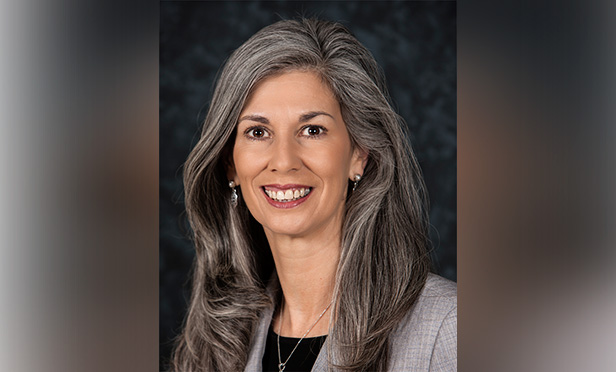
 " I'm not worried about the millennials," but older LGBTQ+ clients face financial obstacles compounded by a lifetime of discrimination, Laura LaTourette says.
" I'm not worried about the millennials," but older LGBTQ+ clients face financial obstacles compounded by a lifetime of discrimination, Laura LaTourette says.
If ever there was a population needing plenty of help with financial issues in their golden years, it's the LGBTQ+ community.
Laura LaTourette, an independent advisor in Dahlonega, Georgia, specializes in serving retirees and pre-retirees in this segment. And in interview with ThinkAdvisor, she reveals the challenges of older gays.
For example, the Silent Generation, born between 1928 and 1945, have challenges exacerbated by advanced age, like discrimination by the health care industry, estate planning issues and the decision of whether or not to marry.
Many lifelong gay partners miss out on spousal financial benefits because they're fearful of family rejection if they wed and/or are unaware of the financial advantages marriage will bring.
LaTourette, principal of Family Wealth Management Group, whose broker-dealer is LPL Financial, is an out and outgoing lesbian who is a passionate advocate for helping other LGBTQ+ people get the financial guidance they need.
She helps other advisors serve that market by sharing best practices and suggesting "how to come out in the very conservative financial services industry," as she puts it.
In the interview, the CFP, 60, talks of how her personal transition from a heterosexual life led to a career as a holistic wealth advisor.
She and her eight-person team, located in the town of Dahlonega (population: about 6,800), at the foothills of the Appalachian Mountains, manage assets of about $52 million. Clients are mostly LGBTQ+ and folks who have family members who are gay.
LaTourette started as an insurance sales rep in the 1980s, expanded into financial planning and opened her own advisory firm in 1998.
ThinkAdvisor recently interviewed the Michigan-born, Milwaukee-bred financial planner by phone. She was speaking from the farm she and her wife, Susan, own 10 miles outside of Dahlonega.
LaTourette is a member of the Financial Planning Association's PridePlanners Knowledge Circle and works with the Certified Financial Planner Board of Standards to encourage younger advisors — particularly lesbians and people of color in general — to earn CFP certification.
Here are excerpts from our interview:
THINKADVISOR: Why did you choose to specialize in LGBTQ+ retirees and pre-retirees?
LAURA LATOURETTE: There are three generations of queer folks to think about, and you have to look at each through a different lens. The Silent Generation — the elders — are having a real problem because they have nowhere to go to feel safe and be taken care of in their final days — whether that's five years or two weeks.
They're really scared. As they get older, they have difficulty finding help with home health care; and a welcoming elder-care facility is hard to find.
What about the two younger generations?
I'm not worried about the millennials. They're coming to terms with their self-identity very quickly. The Pride Generation, of which I'm a part, is used to fighting and advocating; so we're going to push the limits and create what we need.
What specific financial concerns do your older gay clients have?
They're worried about how to leave their partners their wealth without having large tax consequences. Some have never married but have been together for many years. One client couple I have who's in their 80s have been partners for 46 years and are [just now] going to marry.
They're having a secret wedding because they want to avoid dealing with family rejection. As I've been telling them, now they'll be able to transfer wealth, Social Security and pension benefits without tax complications since spousal wealth transfer is a benefit of marriage.
What other financial challenges do LGBTQ+ people face?
Discrimination in housing, credit and wages; lack of career advancement; lack of access to health care. Many hospitals don't recognize the partners as family if they're unmarried.
Do you have clients who have experienced that last issue?
Yes. A couple were partners for over 15 years, and when one of [the men] was hospitalized, he was [resuscitated] five times in six weeks. His partner wanted to take him off life support, but the doctor wouldn't allow it even though he had a health directive [authorizing his partner to make like-or-death decisions if he were incapacitated].
I went down to the hospital as a friend — not a financial advisor — and threatened legal action. LGBTQ+ partners should have the love and respect [from the medical establishment] that they give to heterosexual couples.
What other financial needs do your LGBTQ+ clients have that may be different from your heterosexual clients?
Estate planning can present complexity for married [gay] clients. For example, family dynamics such as limited acceptance or rejection can impact their plans about establishing beneficiaries and also affect planning for charitable giving.
What are challenges for younger LGBTQ+ clients?
Many couples need guidance about starting families. The financial implications of adoption and fertility treatments need to be addressed. Many adoption agencies are religious-based and reject applications from same-sex couples.



